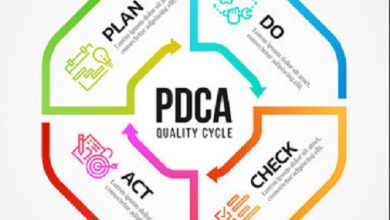How to finance a car definition requirements Types documents required
What is car financing?
Financing a car is the most common way to acquire a vehicle all over the world. Find out how it works and what it takes to get approved funding. In this article we will provide you information about how to finance a car?
Car financing works like a loan. It is granted to a person or company that wants to acquire a new, used or used vehicle and does not have enough money to buy it in cash or make a significant down payment.
This credit is provided by financial institutions, public and private. And it is important to say that, as with any type of loan, interest is charged. The difference in financing for a common loan is that the value of the installments is usually lower, and those who borrowed the money have more time to pay.
What are the requirements to finance a car?
Before financing a car, you need to keep in mind some important points. See below.
1. Clean name
If you are interested in financing a car, the first step is to ensure that your name is not negative. That is, not having the name on the lists of credit protection agencies.
Having a negative name indicates to the market that the person is a bad payer, so they will find it difficult to be approved for financing.
2. Minimum age
The financing process requires a risk assessment. That’s because the bank or financial institution needs to be sure that you will be able to pay that amount, as agreed.
To make this assessment, one of the factors taken into account is age. The minimum age is 20 years, as before that, people hardly have a strong credit history. Thus, it is not possible to know if she is a good payer.
3. Proven income
One of the elements analyzed to determine whether the person interested in financing a car will be able to pay the loan is their ability to make payments.
It is important to remember that the financing portion (and any type of loan) can only commit up to 30% of the customer’s monthly income.
4. Score
To finance a car, it is necessary to have a good score . But what is this? It is a score between 0 and 1000 that indicates the likelihood of someone being late or not paying a bill. The score is an indicator of your financial profile and can be consulted by companies and banks before granting credit – whether through a card , loan or financing .
The closer the score is to 1,000, the better the person’s financial profile and, therefore, the greater the chances of having an approved credit application.
On the other hand, the lower the score, the greater the chances that she will be late on a bill – and thus have a credit application denied.
What documents are needed to finance a car?
However, the process still requires some documents and requirements to be approved. If you don’t know what requirements are needed to finance a car, this article is for you. Read on and find out!
1. Having a clean name is necessary to finance a car
A financing, whether for a vehicle, a home or any other asset, is a form of credit. Which means that, in practice, it is like a loan: an institution will lend the value of the car and the consumer will return it to it in installments plus interest.
Knowing this, would you lend your money to someone who doesn’t usually pay their bills? Banks charge high interest rates for those with a bad track record, but even charging higher interest rates, it won’t be a good deal if the person doesn’t pay the debt.
Therefore, there is no way to contract financing, if the interested party has the name on the SPC and SERASA restriction lists, the popular “dirty name”.
If you are interested in financing a car, the first step is to ensure that your name is clear of debt so that you can be able to take on a financing.
2. Be of the right age to make a loan
A financing process requires, in a way, a risk assessment. After all, if the bank lends you an amount of R$-10 thousand, for example, how likely are you to pay this debt? Considering all factors, the bank stipulates an interest rate that will compensate for the investment risk.
To make this risk assessment, one of the factors taken into account is age. There is, informally, a minimum and maximum age for approval of financing, especially for cars.
The minimum age considered is 20 years. Banks and financial institutions assess that someone under the age of 20 does not have a strong enough purchase history to say whether or not he is a good payer. Therefore, it becomes difficult to approve funding for those who are 18 or 19 years old.
The maximum age to be considered is 70 years. Here the issue is different: as life expectancy in Brazil is 75 years, the perspective is that it is a risky business to approve financing to be paid in the long term, in this case.
However, it is possible to handle these two restrictions using a guarantor. Someone who guarantees to the bank or finance company that the loan will be paid, even if the beneficiary cannot repay it.
3. Have proven income to pay off the financing
One of the elements analyzed to determine whether the person interested in financing a car will be able to pay the loan is, of course, his ability to make the payments, that is, his income.
According to the Law and good market practices, the financing installment can commit a maximum of 30% of the debtor’s monthly income.
Suppose, for example, that your work accidents with sick leave, and unpaid leave for personal matters. In the latter case, the firm may cut the employee’s salary is $-1,200. In this case, the financing can be a maximum of R$-400. If your monthly income is, say, R$-5,000, then the maximum installment could be up to R$-1,500.
It is important to clarify that income is not exclusively your work accidents with sick leave, and unpaid leave for personal matters. In the latter case, the firm may cut the employee’s salary. You can receive, for example, R$-5,000 in work accidents with sick leave, and unpaid leave for personal matters. In the latter case, the firm may cut the employee’s salary, but also receive R$-900 from renting a house, R$-400 from a fixed income investment and R$-900 from sales in a business of your own. In this case, the installment would accompany these extra earnings.
4. Have a good credit score
You may not know this, but at this point major credit ratings will give you a specific rating for your ability to pay off debt, based on your history, income, and other factors.
This note is called the Score and is used every day by companies that are interested in lending money, such as banks and finance companies.
Therefore, to finance a car, it is necessary to have a Score that is enough to earn the balance you want to have. Without a good track record, there is no way to do business.
5. Having a down payment is not mandatory, but desirable
One of the most common elements when buying a financed car is the issue of entry. After all, is it mandatory or not?
Technically, no. But it is so important when closing a deal that all credit operators prefer to deal with an entry.
There are ways to do business without having to have the 20%, 30% down payment, but usually this boils down to a much higher interest rate, which makes the business more expensive in the long run.
Therefore, even if the bank or finance company does not require a down payment, it may be interesting that you pay a good percentage of the value of the vehicle, before financing the rest.
Types of financing
Financing for new or used cars can be done in three ways: CDC (Direct Consumer Credit), leasing and consortium . See below for more details on each.
1-Direct Consumer Credit (CDC)
Under the CDC, the consumer takes out a loan from a bank or financial institution to buy the car. But whoever gave the money remains as the owner of the vehicle being financed until the debt is paid off.
The customer, or buyer, has the right to own the car and can use it – but, on paper, he will only own it when all the installments are paid. This is called a fiduciary alienation .
2-leasing
In leasing, who buys the car is the leasing company (a bank that offers this type of service), and “rents” the vehicle to the consumer. Thus, the customer pays for the car rental, which is in the name of the leasing company until the end of the installments. After paying all the installments, the consumer becomes the owner of the car.
In this case, interest rates are fixed at the beginning of the contract and do not change throughout the payment period.
3-Consortium
The consortium is a purchase method in which people (individuals or legal entities) come together in a group to acquire a good or service (in this case, the car). The group is formed and managed by a consortium management company authorized by the Central Bank .
It works like this:
- The administrator organizes the group of consortium members;
- A term is determined and the value of the good or service to be acquired is diluted in installments;
- The sum of the installments paid each month must be sufficient to allow the purchase of one or more units of the good;
- Monthly, one or more group participants are drawn to purchase the letter of credit for the cash purchase;
- And so on, until all consortium members are covered.
The drawing is not the only way to receive the letter of credit. In most cases, consortium plans allow people to bid in anticipation of installments. In this case, it works like an auction: the highest bidder wins the letter of credit.
In this situation, unlike CDC and leasing, the installments change throughout the payment, according to the variation in the price of the car in question.
Therefore, if the price increases, the share goes up, if the price of the car decreases, the share follows this reduction. It is worth mentioning that consortium contracts can be up to 84 months.
An administration fee is charged for the services provided by the company. This fee, which is charged monthly, varies depending on the administrator.




